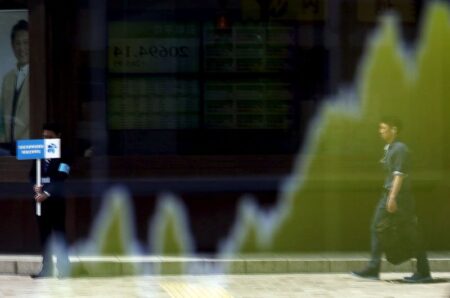Investing.com — Analysts at Citi Research in a note dated Monday flag two key constraints that hinder a more optimistic outlook for Europe, particularly the Euro Area’s economic prospects namely, the European Central Bank’s (ECB) cautious approach to monetary policy and Germany’s fiscal conservatism.
The first major obstacle stems from the ECB’s restrained stance on interest rates. While there are encouraging signs of inflation easing—both headline and core inflation rates are expected to fall below 2% by 2025—the ECB remains hesitant to cut interest rates aggressively.
The Euro Area started better into 2024 than we expected, and consumption prospects or the periphery’s strong performance are constructive, Citi said.
“Supply repair and easing labour market conditions should dispel fears of sticky inflation and open up room for ECB rate cuts,” the analysts said.
This approach is driven by concerns within the institution, especially from more hawkish policymakers who worry that wage growth and inflation could still destabilize expectations.
Despite the disinflationary trends, the ECB’s reluctance to act more swiftly limits the potential for monetary policy to play a stronger role in boosting investment, manufacturing, and consumer spending.
Without a more proactive stance, the region’s economic growth remains constrained, delaying the potential for a robust recovery.
In addition to the ECB’s caution, Germany’s fiscal conservatism poses another significant hurdle.
As Europe’s largest economy, Germany has an outsized influence on the overall trajectory of the Euro Area.
Citi’s analysts mention that Germany’s strict adherence to its constitutional “debt brake” hampers the country’s ability to engage in the kind of fiscal stimulus that could revitalize its economy.
While other major economies in the Eurozone, such as Spain and Italy, are benefiting from structural improvements and external financial support through the Next Generation EU (NGEU) funds, Germany is bound by rules that limit its capacity to increase government spending.
This comes at a time when the German economy is grappling with structural challenges, including high energy costs, demographic pressures, and sluggish export demand.
The continuation of fiscal restraint amidst these headwinds prevents Germany from deploying the necessary tools to stimulate growth.
“We currently expect the government to reduce the budget deficit from 2.1% of GDP in 2023 to 1.8% of GDP in 2024 and 1.3% of GDP in 2025 despite an economy which is in stagnation or mild recession,” the analysts said.
The combination of the ECB’s reluctance to loosen monetary policy more aggressively and Germany’s rigid fiscal stance forms a barrier to a more optimistic outlook for the Euro Area.
These constraints limit the potential for both monetary and fiscal stimulus, at a time when external challenges from weak global demand and geopolitical uncertainties are already pressing on Europe’s growth potential.
Read the full article here
















